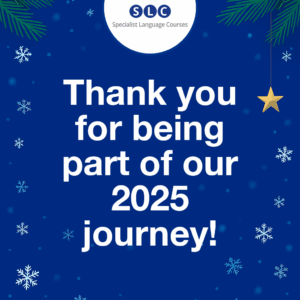
AI-Powered English for Care – Second Beta Test Now Open
Alongside the continued development of our course portfolio, Specialist Language Courses is advancing its AI-Powered English for Care project — an innovative learning tool designed

Many still believe refugee and migrant learners must attend in-person English classes to build social connections. But this overlooks so many learners who:
✅ Can’t leave home due to childcare, health, or cultural reasons
✅ Work shifts that don’t allow fixed schedules
✅ Live far from colleges or centres running ESOL classes
✅ Need specialist courses like OET/IELTS, English for Care, or practical language for housing, work, or driving
They’re flexible, accessible, and inclusive—connecting learners across regions, taught by expert teachers no matter where they’re based. And yes, they’re also social, interactive, and engaging.
Chris Moore, SLC’s Managing Director,
recently shared SLC’s employability-focused online ESOL offer with the South West Councils Regional ESOL Network.
👉 Download the full presentation here and see how online ESOL is opening doors for learners everywhere:

Alongside the continued development of our course portfolio, Specialist Language Courses is advancing its AI-Powered English for Care project — an innovative learning tool designed

As 2025 comes to a close, we’ve been reflecting on what has truly been an inspiring and rewarding year for Specialist Language Courses. It has

We are proud to announce the development of a new OET preparation course for all Professions, designed for healthcare professionals preparing for OET in: Dentistry,
Get updates and get the latest materials on Medical English, OET and IELTS
